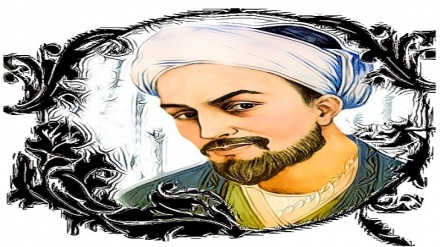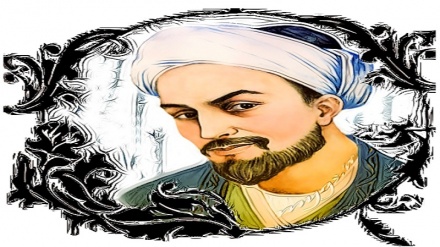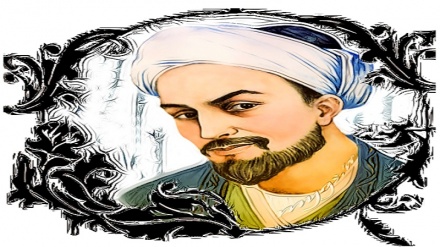Iranian notables, sources of global honor (127)
Today, we study the role of acclaimed poet, Orfi Shirazi, in creation of Indian literary style in Farsi poetry, and his impact on other poets.
We continue to introduce the famed and celebrated Iranian poet of the Safavid era, Orfi Shirazi, whose creative imagination did not fully bear fruit due to his short life. Nonetheless, he created prominent poems which highly influenced other poets.
Mohammad Jamal Ed-Din Orfi Shirazi, who is one of the preeminent poets of 10th Century AH, was born in the city of Shiraz in 936 AH. He learned literature, medicine, logic, philosophy, painting, and calligraphy in his hometown Shiraz. At a young age, he started to compose poems and soon rose into prominence among the poets of his era. At the age of 26, he migrated to India and gained entry to the royal court of Timurid kings with the assistance of Indian poet, Faizi Deccani. He highly progressed in the royal court of Indian King, Akbar Shah. He passed away in the year 999 AH at the age of 36. He was laid to rest in the city of Lahore, and his body was transferred to Najaf, thirty years later.
In the view of many critics, Orfi Shirazi was one of the highly skilled poets of 10th Century AH in composing long odes. He has left behind 14,000 poetic lines. Many literary critics have considered him as one of the pioneers of Indian literary style, which captured the attention of many of his succeeding poets and authors. Note that throughout 11th and 12th Centuries AH, a new Farsi poetic style was promoted, which became popularly known as Indian literary style.
According to the renowned poet of 12th Century AH, Waleh Daqestani, the poetic style of Orfi Shirazi had transcended the poetic style, common in in his hometown, Shiraz, even prior to his migration to India.
Orfi considered himself to be the follower of the poetic style of Khaqani, the most important Farsi poet of 6th Century AH.
According to the contemporary researcher, Zabihollah Safaa, the popularity of Orfi in composing long odes is for a number of reasons. Firstly, he maintained the ability to follow the style of other poets. Secondly, he displayed extraordinary abilities in creating fluent and eloquent poetry, which prompted other poets to follow his lead. Thirdly, he was highly capable of inclusion of scientific thoughts and precise points in his poems.
Orfi Shirazi, in his short life, established a bond between the poetry of Baba Faghani Shirazi and the Indian literary style. Baba Faghani, who lived in the first half of 10th Century AH, did not follow the common poetic style of his era and managed to compose highly emotional poems. According to the contemporary researcher, Zabihollah Safaa, the poetic style of Baba Faghani was face with mixed reactions. Some admired his poetic style, while some others opposed it, and tried to humiliate his poems. Baba Faghani, who maintained a tendency to use simple language in his poems and to enhance the emotional state of his poetry, created emotional poems, founding the Indian literary style in Farsi poetry. According to researcher, Dr. Sirus Shamisa, the poems of Orfi Shirazi are the outcome of the creative poems of famed poets, Sa’adi, Hafez, Baba Faghani Shirazi, and Ahli Shirazi; laying the ground for emergence of Indian literary style in Farsi poetry.
Farsi odes display the personal sentiments of the poet and a blend of love, emotion, and imagination. Throughout particular political conditions, such as the Constitutional Era, poets used odes for expression of their political and epical thoughts. Odes are mainly the innate means of the poet for depicting arts. Upon a glance at Orfi Shirazi’s collection of poems, it can be said that his poetry is uniquely insightful and is a combination of arts and his personal outlook toward his surrounding environment. Orfi has repeatedly discussed the topics considered by his predecessors, but has chosen a unique approach for expression of these topics of importance. He has applied especially unique linguistic, musical, and literary trends in his poetry. He follows the poetic style of Baba Faghani Shirazi in composing his poetry.
Meanwhile, many poets, such as Taleb Amoli, Sheikh Bahai, and Saeb Tabrizi have either directly or indirectly been influenced by the poetic style of Orfi Shirazi, in creating their poems.
Sheikh Bahai is one of the prominent poets of Safavid era, who included a summary of his knowledge in his poems. He has cited a number of the couplets and quatrains of the famed poet, Orfi Shirazi, in one of his well-known works.
Naziri Neyshapouri is another pioneer of Indian literary style in Farsi poetry, who followed the poetic style of Orfi Shirazi. Naziri’s life, events, and poetic style highly resemble those of Orfi Shirazi. These two poets maintained poetical rivalry, and held many debates. The literary critics considered such literary debates as a kind of literary exchange and termed such competitiveness as positive.
Furthermore, the other celebrated and acclaimed poet, Saeb Tabrizi, has clearly emphasized the influence of Orfi Shirazi’s poetical style on his poetry and has composed odes, which highly resemble the odes created by Orfi Shirazi. Orfi’s poems were etched in the memory of his contemporary people and poets, and were highly popular.
EA


